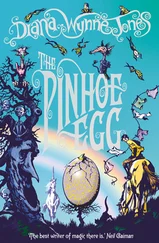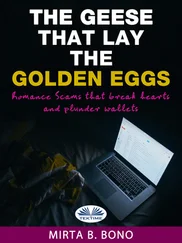‘White?’
She looked out the window before she answered, in the direction of the Dolomites, though they were hidden by the combination of pollution and fog that descended
on the Veneto for a good portion of the year. ‘No, I think it’s time to start drinking red again,’ she said, and bent to pull a frying pan out of the cabinet.
Brunetti did as he was told and chose a bottle of simple Cabernet. White might have been better as a follow-up to the spritz, but if Paola wanted red, then red it would be.
She put the frying pan on the stove, glanced at her watch, and took the glass he offered her. She sipped, nodded her thanks, and asked, ‘You think there’s time to watch the sun set?’
It had already happened when they got to the living room, so they contented themselves with sitting on the sofa and watching the light disappear in the west. Before Brunetti could do the husbandly thing and ask Paola how her day had been, she said, ‘Her behaviour’s strange, isn’t it?’
Superstition stopped him from asking Paola how she would behave if she were to lose her son; indeed, it banished the question even before it was fully formed in his mind. ‘How’s she supposed to behave?’ Brunetti asked. ‘I don’t know if he’s her only son, or only child.’ He considered this, then said, ‘Not that it matters, does it?’
Eyes still on the light that continued to diminish beyond the rooftops, she shook her head and sipped at her wine.
Brunetti began to wonder how much of their interest, now, was concern and how much was curiosity and why one was noble and the other base. Before he married and became a father, he was able to mouth platitudes about how horrible the death of a child must be for a parent, but now he could not say those things, nor could he allow himself to think of them. Like a medieval peasant, he refused to open his door to the carrier of plague.
The light grew dimmer still. Paola looked into her glass and said, ‘I’ve been thinking about what you said. About suicide.’ She took a very small sip. ‘I wonder if it’s possible that he got to the point where his life was so bad, he couldn’t stand it any more?’
Brunetti thought about this and said, ‘He’d have to know it was bad, wouldn’t he?’
She turned her head to him sharply, mouth open. But before she could ask him what he meant, Brunetti saw her hear her own question and begin to consider it. Finally she said, ‘Of course. If that’s the only life he knew, then it was just that: life. Something worse would have to have happened, I suppose.’
They remained silent, each trying to imagine what could be worse than the life they had observed, until Paola said, ‘Or maybe he simply found them and thought they were something else and ate them.’
‘Rizzardi suggested that. It would depend on how much he understood.’ Saying that, Brunetti realized that this was the unfathomable puzzle here: how enter into another’s mind save by words?
‘Only God knows that, I’m afraid,’ Paola said. Then, ‘But it might explain the mother’s behaviour.’
‘Guilt?’
Paola took another sip, shrugged, and finished the wine. ‘I think I’ll start cooking.’
‘Good idea,’ Brunetti said.
The meal was quiet: the children sensed the sobriety of their parents’ mood and responded in kind. Chiara spoke of an argument she’d had. A friend had wanted Chiara to call and ask her parents if she could come to dinner at Chiara’s house and stay on to study so that she could see her boyfriend; Chiara had refused, and now the girl wasn’t speaking to her any more.
‘Why’d you refuse?’ Raffi asked, not surprised, just curious.
Chiara speared a shrimp from her risotto and studied it, as though asking it to supply her with the correct answer. ‘Her parents have always been very nice to me. It didn’t seem right to lie to them.’
Brunetti waited for Paola to put on her Socrates costume and ask Chiara what she would have done if her friend’s parents had not been nice to her, but she remained silent, finishing her own risotto.
‘Isn’t there any mineral water?’ Raffi asked.
‘No, and there won’t be any more,’ Chiara answered, then added, ‘This house is a mineral-water-free zone.’
‘Declared so by you?’ Raffi asked calmly. After all, he’d known her all her life, and little could surprise him from or about his sister.
‘Yes.’
‘Why?’ Raffi asked.
‘Because there’s no guarantee of what’s in it.’
‘Water, presumably,’ Raffi said with his mother’s detached irony.
‘Yes, water. Certainly,’ Chiara said, striving for that same tone but falling short of it. ‘And lots of other things, none of which we know about.’
‘And this?’ Raffi asked, holding up the pitcher he now realized must contain tap water. ‘Aside from too much chlorine, that is?’
‘That’s tested, at least,’ Chiara said. ‘The water we were drinking last week, in case you bothered to read the label on the bottles,’ she told him, ‘is not.’ Here began a dynamic Brunetti had been observing for years. Chiara was gearing herself up for an argument: it was audible in her tone. Raffi was getting ready to beat her argument aside by use of superior age and information.
Brunetti tuned back in. ‘. . . from Puglia, from a spring that is four kilometres from a chemical factory that was shut down by a court order three weeks ago.’ Raffi tried to speak, but she rammed through whatever it was he started to say and kept going. ‘Because they have been dumping chemicals into the earth for thirty years. Which means – though a lawyer would say it only suggests – that the chemicals are now in the groundwater and thus in the mineral water. And if you want to believe that the list of mineral quantities on the bottle labels even flirts with the truth, you are welcome to do so. I’ll drink tap water.’
Brunetti realized that, had she been a true avatar of Paola, she would here have picked up the pitcher and filled her glass. But she was new to this and so she speared another shrimp and ate it, ignoring the dramatic possibilities offered by the pitcher. In a few years, Brunetti thought, she’d think of that and do it and, sooner or later, she’d be unbeatable.
Raffi, not to be daunted, asked, ‘You sure it’s not because you’re tied of carrying the bottles up the steps?’
‘I don’t have anything to do with plastic bottles,’ Chiara said loftily. Before Raffi could argue, Paola declared a truce by getting to her feet and asking him to help her carry the plates from the table.
The cake with fresh blackcurrants and whipped cream sealed the peace accord. Brunetti, a mere spectator to the discussion, said nothing of his delight that Chiara had put an end to his having to carry glass bottles of mineral water to the fourth floor, a realization that made all the sweeter his second piece of cake.
7
When he reached his office the next day, he found a note on his desk, asking him to call Dottor Rizzardi. After he and the pathologist had exchanged greetings, Rizzardi said, ‘This Cavanella doesn’t exist.’
‘I beg your pardon,’ Brunetti said. ‘You did an autopsy on him yesterday.’
Rizzardi weighed that for sarcasm and apparently heard none. ‘I’m sorry, Guido; I was probably speaking for effect. The secretary here called the Ufficio Anagrafe to report his death, but they have no record of him at that address.’
‘Then he’s resident somewhere else,’ Brunetti said, almost embarrassed at having to state the obvious.
‘Not in the city,’ Rizzardi said tersely. ‘The office checked when we asked: he’s not now and has never been resident in Venice.’
‘Then in the Veneto, I’d guess,’ Brunetti said, thinking back to the very few words he had heard the mother say and recalling the telltale Veneto cadence.
Читать дальше












